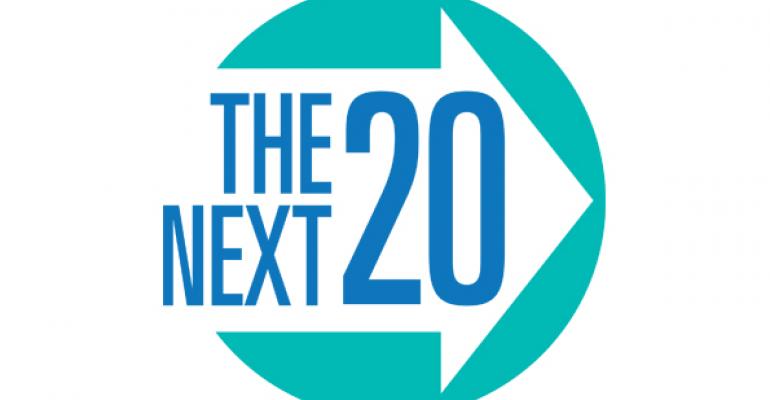The brands comprising The Next 20 reflect a variety of menu types, service styles and growth trajectories. They range in age from 5 to 87 years, have U.S. systemwide sales from $38.2 million to $126.6 million, and Latest-Year sales trends that include both a 3.3-percent decline and an 89.7-percent increase. More than half are Casual-Dining chains, but the group also includes frozen yogurt, burrito and breakfast specialists. Get a closer look at The Next 20 chains, listed here in descending order by U.S. systemwide sales. All sales and unit figures are for the Latest Year.
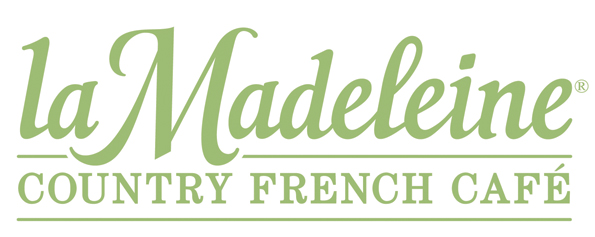
La Madeleine Country French Café
Sales: $126.6 million (+3.4%)
Headquarters: Dallas
Market segment: Bakery-Cafe
No. of units: 60 (+1.7%)
ESPU: $2.1 million (+3.4%)
Year founded: 1983
This bakery-cafe concept, whose parent company is the North American division of Rennes, France-based Groupe Le Duff S.A., has been moving away from its short-line cafeteria model to a more modular store, which is allowing the chain to expand more readily into nontraditional locations and malls. With a menu squarely positioned in the increasingly popular niche that includes Panera Bread and Corner Bakery Cafe, Le Duff is looking to broaden the types of locations into which its concept can fit.
A franchise program launched in 2011 has been infused with new life with the addition of sister concepts Bruegger’s Bagel Bakery and Brioche Dorée. A new franchised location is expected to open in Lubbock, Texas, later this year. Paul Carolan, Le Duff America’s chief development officer, said La Madeleine is exploring more airport locations, including Hartsfield-Jackson Atlanta International Airport and Dallas Love Field. A Dallas/Fort Worth International Airport store is expected to open in 2014. The most recent prototypes showcase the concept’s bakery and in-store pastry chefs.
 Del Frisco’s Double Eagle Steak House
Del Frisco’s Double Eagle Steak House
Sales: $124.7 million (+11.9%)
Headquarters: Southlake, Texas
Market segment: Casual Dining
No. of units: 10 (+11.1%)
ESPU: $13.1 million (+0.2%)
Year founded: 1982
The 10-unit Del Frisco’s Double Eagle Steak House remains the finer-dining expansion vehicle in the Del Frisco’s Restaurant Group Inc. portfolio, which also includes Sullivan’s Steakhouse and Del Frisco’s Grille. The restaurants tend to be large — last year, a 23,000-square-foot branch opened on three floors of the Esquire Theater in Chicago’s Gold Coast neighborhood — and sales have been solid in the segment.
For the latest second quarter, ended in June, the Double Eagle brand’s same-store sales rose 5.9 percent, with most of that increase being generated by positive guest counts. Mark S. Mednansky, DFRG’s chief executive, said, “We have pricing capacity at this concept.” The chain has spurred guest traffic with such recent offerings as a $49 fixed-price menu and a Sunday promotion of a $99 three-course dinner for two called Power Couple Sundays.
The company has announced plans to add private dining seats to some restaurants and remodel others to, in Mednansky’s words, “keep our existing locations fresh and relevant.”
Rock Bottom, Gordon Biersch
 Rock Bottom Restaurant & Brewery
Rock Bottom Restaurant & Brewery
Sales: $124.7 million (–3.3%)
Headquarters: Louisville, Colo.
Market segment: Casual Dining
No. of units: 33 (–10.8%)
ESPU: $3.6 million (+5%)
Year founded: 1991
Rock Bottom Restaurant & Brewery has grown as a more polished casual-dining concept that showcases what today’s consumers want: craft beer. Rock Bottom offers more than 700 original microbrew and specialty beers, as well as wine and cocktails. The chain is known for its beers brewed on-site, a trend that has growing appeal for Millennials.
The menu at Rock Bottom includes grilled items, burgers, sandwiches and pizzas, with an emphasis on scratch-made selections. Despite the beer focus, families are welcome, and the menu includes kids’ offerings.
Rock Bottom in 2010 was acquired by Centerbridge Partners L.P., which merged the brand with Gordon Biersch Brewery Restaurant Group Inc. to create CraftWorks Restaurants & Breweries Inc. In addition to Rock Bottom and Gordon Biersch, the company operates and franchises the Old Chicago Pizza & Taproom, ChopHouse & Brewery, Bluewater Grille, A1A Ale Works, Ragtime Tavern Seafood & Grill, Seven Bridges Grille & Brewery, Walnut Brewery, Sing Sing and Big River Grille & Brewing Works. It operates and franchises more than 200 brewery and craft-beer-focused restaurants.
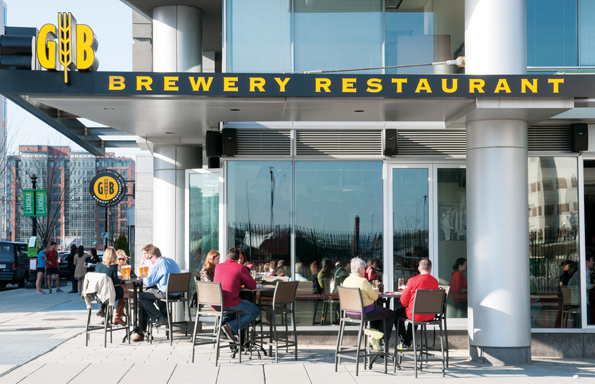
Gordon Biersch Brewery Restaurant
Sales: $120.8 million (+4.1%)
Headquarters: Chattanooga, Tenn.
Market segment: Casual Dining
No. of units: 34 (+6.3%)
ESPU: $3.7 million (–3.8%)
Year founded: 1988
Every Gordon Biersch Brewery Restaurant location brews its own beer on-premises. While this isn’t new to Gordon Biersch — the company has been doing it for years — it allows the brand to capitalize on U.S. consumers’ growing taste for craft beers and to differentiate itself from the competition.
Owned by Centerbridge Partners L.P., the casual-dining brewpub concept has remained relevant over the past 25 years by evolving with the times.
In 2010 the company unveiled an On the Lighter Side menu, including 10 items with fewer than 575 calories each. In February it added 23 new menu items that capitalized on current food trends, including a quinoa-kale pilaf, sweet potato fries and Korean barbecue pork chops.
The company has jettisoned some of its sweeter cocktails and instead embraced classic cocktails. Gordon Biersch also added a Honey Basil Collins, which is a gin drink inspired by the classic Tom Collins cocktail, and the Veev Mule, a play on the Moscow Mule that is made with açaí spirit, mint, fresh lime and ginger ale.
The Palm, Saint Louis Bread Co.
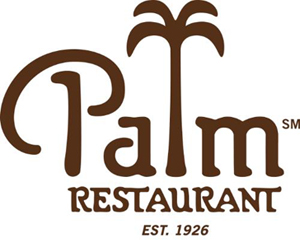 The Palm
The Palm
Sales: $120.2 million (+4.4%)
Headquarters: Washington
Market segment: Casual Dining
No. of units: 26 (flat)
ESPU: $4.6 million (+4.4%)
Year founded: 1926
Founded in New York by immigrants John Ganzi and Pio Bozzi, The Palm has been owned by the same two families for its 87 years, but has nevertheless retained its contemporary edge in the highly competitive upscale steakhouse niche. Operated today by third-generation owners Wally Ganzi and Bruce Bozzi, The Palm counts 26 branches in the United States as well as one in Mexico and one in London.
Originally opened as an Italian restaurant, The Palm became famous for its Prime aged steaks and jumbo lobsters. The chain has grown steadily but methodically over the years, opening only company-owned locations. While the steakhouse chain did not open a new restaurant in 2012, it remodeled its 35-year-old Houston location, which is expected to serve as a prototype as the brand moves forward. The Houston design includes a new entrance; a “feature wall” that showcases The Palm’s famous caricatures; a lounge with a hammered tin ceiling, leather upholstered booths and two 55-inch flat-screen TVs; and a dining room lit by streetlamp-inspired chandeliers and sconces.
 Saint Louis Bread Co.
Saint Louis Bread Co.
Sales: $118.5 million (+8.5%)
Headquarters: Richmond Heights, Mo.
Market segment: Bakery-Cafe
No. of units: 48 (flat)
ESPU: $2.5 million (+8.5%)
Year founded: 1993
Saint Louis Bread Co. is the brand name under which Panera Bread Inc. continues to operate in the company’s home market of St. Louis. While the number of Saint Louis Bread locations has remained flat at 48, the concept’s 8.5-percent increase in estimated sales per unit to $2.5 million has tracked closely with parent Panera Bread’s rate of growth for average unit sales.
As with sibling concept Paradise Bakery & Café, Saint Louis Bread benefits from sales- and traffic-driving initiatives developed by Panera, like its programs to increase its catering business and step up marketing spending. At the same time, however, the chain likely will encounter the same headwinds to its same-store sales growth momentum that Panera has cited previously. In particular, softer sales and traffic at the breakfast daypart have offset growth in the evening, which the fast-casual chain plans to remedy in the second half of the year by mixing in more product-specific advertising aimed at breakfast items with the “Live consciously, eat deliciously” campaign.
Cafe Rio, First Watch
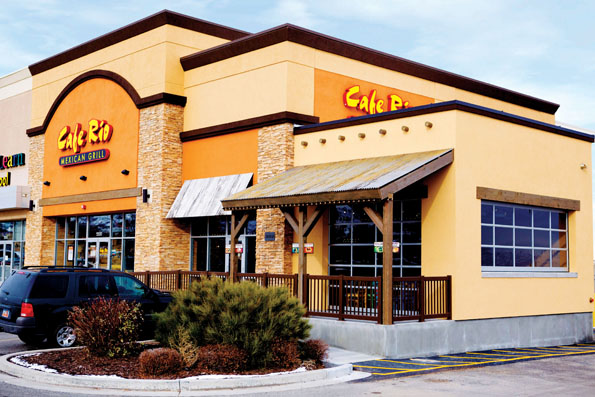
Cafe Rio Mexican Grill
Sales: $117.7 million (+25.9%)
Headquarters: Salt Lake City
Market segment: LSR/Mexican
No. of units: 57 (+23.9%)
ESPU: $2.3 million (+0.2%)
Year founded: 1997
In the crowded fast-casual Mexican space, Cafe Rio Mexican Grill aims to stand out as a concept where food is prepared from scratch. From the tortillas — made from flour, water and shortening and served hot off the comal — to salsas, salad dressings and guacamole, everything is made in-house. Cafe Rio’s menu also is broader than that of competitors like Chipotle Mexican Grill. At Cafe Rio guests have the usual burrito, taco, bowl and salad options, but they can also choose items like enchiladas, tostadas, soups and desserts.
Bob Nilsen, a former president of Burger King and longtime executive of Yum! Brands Inc., bought the then-six-unit Cafe Rio chain from founder Steve Stanley in 2004. Nilsen was joined in the acquisition by private equity investor KarpReilly LLC, which has a number of restaurant brands in its portfolio, including Burger Lounge, Café Zupas, Sprinkles Cupcakes and Hooters.
Now in 10 states and growing, Cafe Rio plans to add 12 locations this year, all company owned, filling in existing markets. Last year, the chain added 11 locations.

First Watch
Sales: $113.5 million (+13.5%)
Headquarters: Bradenton, Fla.
Market segment: Family Dining
No. of units: 102 (+8.5%)
ESPU: $1.2 million (+3.1%)
Year founded: 1983
First Watch, the breakfast and lunch concept, has seen its estimated sales per unit grow 3.8 percent within the last year and its estimated overall sales spike 13.5 percent, all while maintaining rapid unit growth. And that’s all the more impressive since the chain is only open until 2 p.m. or 2:30 p.m. each day and has no alcohol sales. While other family-dining concepts have struggled to maintain growth over the past several years, First Watch is succeeding.
By 2017 First Watch hopes to have 300 or more restaurants in operation, said chief marketing officer Chris Tomasso. Target markets include southeast Florida; Baltimore; Washington, D.C.; Nashville, Tenn.; and Indianapolis. Most of the new units will be company owned. Only 10 percent of the current fleet are franchised units.
Although the growth is rapid, the plan for looking for new units is thoughtful. The company has specific demographic profiles it looks for when choosing locations, including assessing the potential for family lunchtime visits during the week and business breakfast in corporate parks and urban areas.
Yogurtland, Il Fornaio
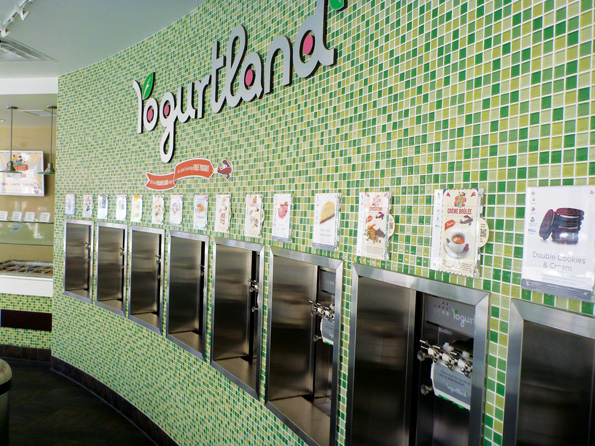
Yogurtland
Sales: $112.2 million (+10.8%)
Headquarters: Irvine, Calif.
Market segment: Beverage-Snack
No. of units: 184 (+8.9%)
ESPU: $635,700 (–13.1%)
Year founded: 2006
Pinkberry may have sparked the revival of frozen yogurt in the past decade, but it was Yogurtland that pioneered the self-service model in which guests pay by the ounce — a format most frozen yogurt players have imitated. In the crowded froyo space, Yogurtland has strived to differentiate by focusing on offering “real ingredients” sourced from original locations. The Madagascar vanilla beans come from Madagascar, the Belgian chocolate is from Belgium, and the maqui berries are from Patagonia.
The chain boasts a team of “flavorologists” who develop custom yogurt flavors, from Sticky Toffee Pudding to Guava Grapefruit Sorbet, and more than 60 premium toppings and fresh fruits are available for guests to pile on. Most locations offer 16 flavors at any one time.
This year, Yogurtland is moving into new markets, like Rhode Island, as well as filling in existing markets in California, Boston, Chicago and New York, with about 50 units in the pipeline for the second half of the year.
Internationally, the brand is growing in Australia, Guam, Mexico and Venezuela.
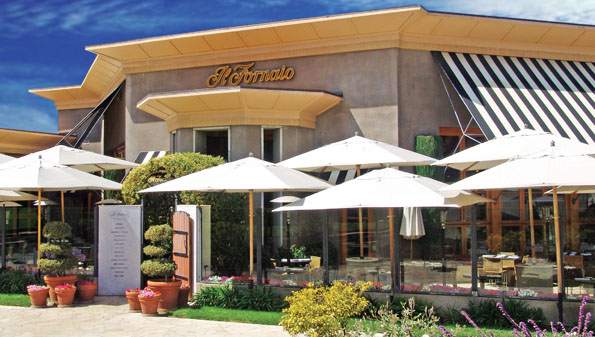
Il Fornaio
Sales: $107.1 million (–0.5%)
Headquarters: Corte Madera, Calif.
Market segment: Casual Dining
No. of units: 19 (–5%)
ESPU: $5.5 million (+2.1%)
Year founded: 1981
Originally a baking school and bakery chain, Il Fornaio branched out into the full-service restaurant business, eventually going public in 1997. The chain went private again in a management buyout in 2001. Six years later, Il Fornaio bought Corner Bakery Cafe from Brinker International Inc. Roark Capital Group acquired both brands in 2011.
Since then, Il Fornaio closed a few underperforming units and sold two bakery facilities. The buyer, Zurich-based bread company Aryzta, however, is producing bread under the Il Fornaio brand. Some restaurants have bakery facilities where bread is still baked in-house.
Il Fornaio is looking to grow its restaurants again for the first time in five years, and a new prototype is in the works. Some of the new elements will be seen in the remodel of the chain’s Las Vegas location.
The chain also is building its bar business, with a popular happy hour and artisan cocktails. Though many locations are three daypart, officials said the new Il Fornaio will move away from less profitable breakfast to focus more on evening bar business.
Smith & Wollensky, Ted's Montana Grill

Smith & Wollensky
Sales: $102.7 million (+9.6%)
Headquarters: Boston
Market segment: Casual Dining
No. of units: 10 (flat)
ESPU: $10.3 million (+4.1%)
Year founded: 1977
The first Smith & Wollensky steakhouse was opened in New York more than three decades ago by restaurateurs Alan Stillman and Ben Benson with a group of investors, who still own the original Manhattan location. The brand was acquired by Bunker Hill Capital L.P. in 2007 and is now operated by Smith & Wollensky Restaurant Group Inc. Smith & Wollensky opened its second Boston location a little over a year ago and is exploring other potential locations in the U.S. and abroad.
Meanwhile, the company continues to evolve and refine its contemporary upscale steakhouse experience. Smith & Wollensky Restaurant Group recently named 30-year veteran Joe O’Brien to the post of national director of operations with responsibility for operations and overall management of the company’s nine locations. Smith & Wollensky also adjusted its fare for the season when Matt King, national director of culinary development, rolled out its summer menu. The chain also is hosting the 53rd National Wine Week, an annual event showcasing the restaurants’ extensive wine lists.
 Ted’s Montana Grill
Ted’s Montana Grill
Sales: $102 million (+4.1%)
Headquarters: Atlanta
Market segment: Casual Dining
No. of units: 44 (flat)
ESPU: $2.3 million (+6.5%)
Year founded: 2002
Backed by businessman and media giant Ted Turner, Ted’s Montana Grill has grown to 44 locations. The chain sets itself apart by offering something the traditional casual burger chains don’t always have: bison burgers.
Operated by chief executive George McKerrow Jr., Ted’s has evolved its menu over time and grown its footprint throughout the U.S. while remaining true to its core values and roots in Americana.
Part of the goal in serving bison meat was to help save the dwindling American buffalo herds. The fact that Ted’s will buy and sell the meat means that ranchers have incentive to raise larger herds, the company said.
In 2010 Ted’s closed nine units, but since then, the company has doubled down on what it said makes it special — unique food served in a unique environment — and has managed to post consistent sales growth.
The company is noteworthy for its environmental efforts, using everything from recyclable straws to energy-efficient lighting. On its website the company notes that it aspires to be 99-percent plastic free.
Souplantation, Paradise Bakery

Souplantation
Sales: $100.9 million (–0.6%)
Headquarters: San Diego
Market segment: Buffet
No. of units: 41 (flat)
ESPU: $2.5 million (–4.2%)
Year founded: 1978
One of the first salad-bar concepts, Souplantation has developed a dual personality under operation by Garden Fresh Restaurant Corp. The 41-unit Souplantation brand is part of 112 restaurants operated by Garden Fresh, although locations outside of Southern California are known as Sweet Tomatoes. Over the past year, both Souplantation and Sweet Tomatoes have been going through a revival. In June 2012 Garden Fresh hired a new chief executive, David Goronkin. Other changes included a new head of marketing, senior vice president of development and corporate chef.
Goronkin launched a refresh program that aims to update the decor and expand more on the chain’s farm-fresh produce and healthful offerings. Some restaurants will add beer and wine, and the menu includes new grilled protein skewer options. So far, three Souplantation locations have completed the remodel, with more to come before the end of the year.
Souplantation is hitting on elements that are important to today’s diners. Guests can fully customize their meals, indulging if they want to or eating lightly. The concept also addresses the needs of vegetarians, vegans and diners avoiding gluten.
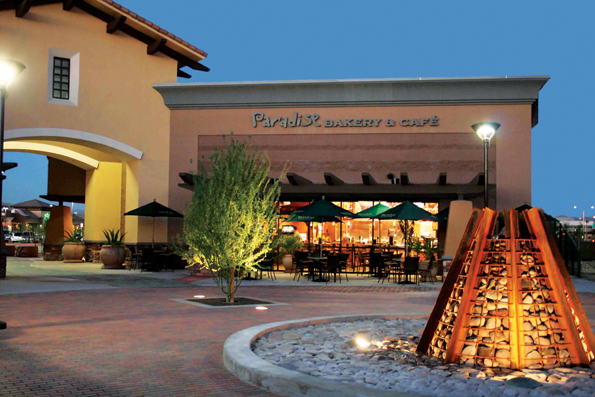
Paradise Bakery & Café
Sales: $100.2 million (–2.8%)
Headquarters: Richmond Heights, Mo.
Market segment: Bakery-Cafe
No. of units: 61 (–1.6%)
ESPU: $1.6 million (+7.5%)
Year founded: 1976
Launched more than a quarter-century ago in Long Beach, Calif., the Paradise Bakery & Café fast-casual concept had moved its headquarters to Arizona by 2007 when powerhouse Panera Bread Inc. purchased a majority stake in the company, adding to its bakery-cafe footprint in the West and Southwest. Panera purchased the balance of Paradise Bakery & Café in 2009 and since then has reshaped the chain’s menu to mirror that of the popular bakery-cafe flagship chain.
Paradise operates in seven states, although Arizona claims the greatest share of its unit count, with 38 stores. Utah and Texas both have a handful of locations, as does Indiana. There also are two locations in Nebraska and single units in Colorado and Massachusetts. Paradise did close one restaurant in fiscal 2012, during which time the brand’s estimated sales per unit rose 7.5 percent to $1.6 million — likely due to similar sales drivers as those at Panera. Those include its focus on catering and popular limited-time offers like the Strawberry Poppyseed & Chicken Salad, offered during the summer.
Twin Peaks, Kona Grill
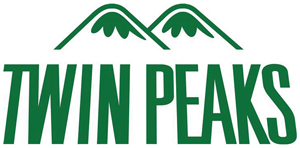 Twin Peaks
Twin Peaks
Sales: $97.7 million (+89.7%)
Headquarters: Addison, Texas
Market segment: Casual Dining
No. of units: 28 (+55.6%)
ESPU: $4.2 million (+19.6%)
Year founded: 2005
Through a combination of aggressive franchising and some corporate development, parent Front Burner Restaurants Inc. said it will have 50 Twin Peaks outlets up and running by the end of the year, showcasing the casual-dining brand’s photogenic all-female waitstaff and signature 29-degree beer. Twin Peaks ended fiscal 2012 with 28 units, but the company just opened its 35th restaurant in Little Rock, Ark., and recently debuted in such high-profile locations as the Las Vegas Strip with a unit that features a climbing wall.
The concept has attracted several enthusiastic franchisees. In March, for example, Twin Peaks signed a seven-year, 16-unit deal for Kentucky, Ohio and Virginia, and in late July it announced a four-unit deal for the southwest coast of Florida. Twin Peaks has relied on conversions of former restaurant spaces for its new units. However, it also has begun building its first ground-up buildings, seen in the July-opened 8,500-square-foot Little Rock branch and at a unit under construction in north Fort Worth, Texas. The new units borrow elements from a more contemporary mountain-lodge-like design introduced last year in Chicago.
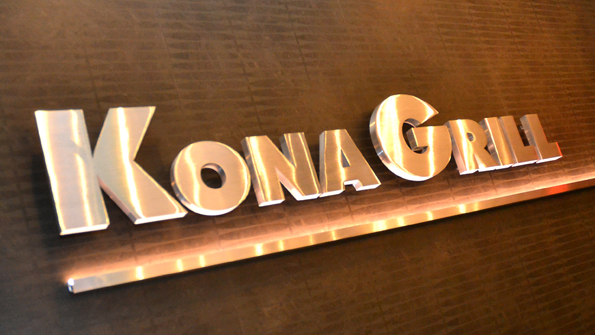
Kona Grill
Sales: $96 million (+2.5%)
Headquarters: Scottsdale, Ariz.
Market segment: Casual Dining
No. of units: 23 (flat)
ESPU: $4.2 million (+6.9%)
Year founded: 1998
Kona Grill has carved out a niche among casual-dining peers by combining an American grill menu with an extensive range of sushi offerings — a culinary strategy that provides a point of differentiation from upscale-casual competitors like The Cheesecake Factory. The chain’s signature sushi rolls and sashimi, combined with its selection of cocktails and wine list, account for a slight majority of Kona Grill’s sales, officials have said.
During fiscal 2012 Kona focused on a happy hour menu to increase alcoholic beverage sales and drive even more traffic to Kona’s patios, which are a major source of business in its warm-climate markets. Unseasonably warm weather in the first quarter and half of fiscal 2012 benefited Kona’s sales performance, though the brand struggled a year later with those same-store sales comparisons as weather turned cooler.
A new interior design for restaurants that are scheduled to be remodeled includes a lounge area with more comfortable seating and televisions to encourage between-daypart lingering. An unspecified number of remodels were scheduled for 2013, officials said.
Sullivan's Steakhouse, Red Mango
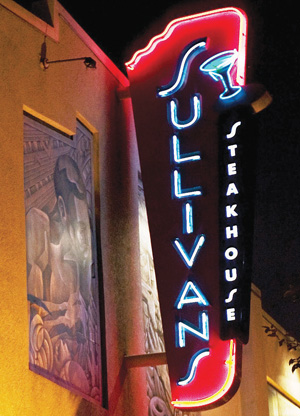 Sullivan’s Steakhouse
Sullivan’s Steakhouse
Sales: $83.8 million (+1.2%)
Headquarters: Southlake, Texas
Market segment: Casual Dining
No. of units: 19 (–5%)
ESPU: $4.3 million (+3.8%)
Year founded: 1996
Parent Del Frisco’s Restaurant Group Inc., which also operates the high-end Del Frisco’s Double Eagle Steak House and the more casual Del Frisco’s Grille concepts, has been working this year to reposition the 19-unit Sullivan’s Steakhouse concept. Originally designed to evoke a Prohibition-era eatery with live jazz, DFRG recently has been recasting the concept as “an affordable neighborhood steakhouse” by introducing a fixed-price menu.
In the most recent quarter ended June 11, as the company worked toward that goal, Sullivan’s saw traffic increase 1.4 percent but revenues dip about 2.7 percent and the average check slip 4.1 percent. “We’re devoting significant resources to retooling the brand to ensure it is widely viewed as the affordable destination for upscale neighborhood steakhouse dining,” said Mark S. Mednansky, DFRG’s chief executive. The company said it is willing to accept lower checks as it redesigns the dining and bar areas and repositions advertising. That includes promoting a new $39 Sure Thing menu, which is a three-course meal option that includes appetizer, salad and entrée. The brand also replaced 19 items on the menu.
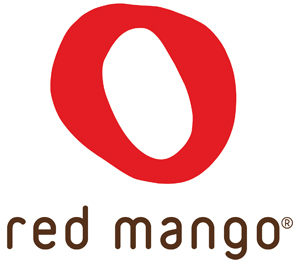 Red Mango
Red Mango
Sales: $64 million (+30.6%)
Headquarters: Dallas
Market segment: Beverage-Snack
No. of units: 209 (+40.3%)
ESPU: $357,500 (–9.2%)
Year founded: 2006
Red Mango has carved out an international niche by branding itself as a healthier-for-you frozen yogurt concept with proprietary probiotics and all-natural positioning. In an effort to strengthen its breakfast daypart business, the chain has broadened its smoothie offerings to more than 20 different recipes. The percentage of sales contributed by smoothies “continues to grow significantly,” said Jim Notarnicola, Red Mango’s director of franchising, and the menu item, along with the brand’s parfaits, can serve as more of a meal replacement than the frozen yogurt alone.
Red Mango also offers a flexible store format for franchisees, ranging from self-serve to full-service units that are available in sizes that can be as compact as 450 square feet. The company has grown with licensing partners like Aramark, Compass Group USA and Sodexo on college campuses and in airports, office buildings and health care facilities.
Notarnicola said Red Mango is on track to open about 75 stores this year. At mid-year 2013 the company had about 250 stores, with international growth in Mexico and elsewhere in Latin America, and new agreements in Puerto Rico and Canada.
Brick House, Stevi B's
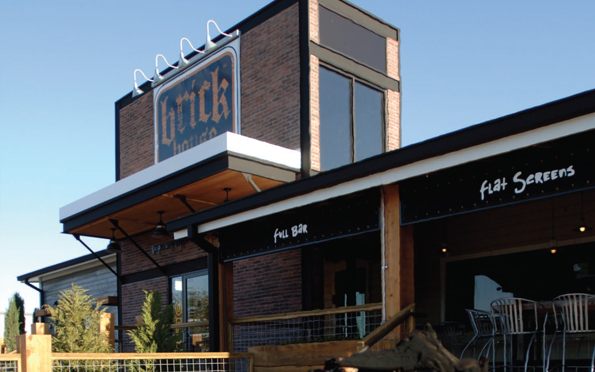
Brick House Tavern + Tap
Sales: $51.5 million (+10.8%)
Headquarters: Houston
Market segment: Casual Dining
No. of units: 15 (–6.3%)
ESPU: $3.3 million (+3.6%)
Year founded: 2008
Ignite Restaurant Group Inc.’s upscale-casual brand began as a concept the company used for shuttered locations of its Joe’s Crab Shack chain. But Brick House Tavern + Tap, which sports gastropub-meets-man-cave decor, is poised to grow in its own right. The chain will compete for growth with concepts like Twin Peaks and The Tilted Kilt Pub & Eatery as well as more traditional casual-dining concepts.
A major Brick House initiative is its focus on the bar, which is meant to drive traffic in between the lunch and dinner dayparts as well as during the late-night period. Its menu also provides for visits at off-peak dayparts, as snacks like sliders and soft pretzels share space with brick-oven pizzas and shareable meatballs. Executives have said that Ignite, which also acquired Romano’s Macaroni Grill and its franchising operation this year, plans to begin franchising Brick House soon.
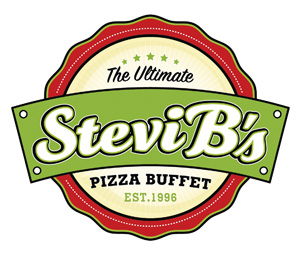 Stevi B’s Pizza Buffet
Stevi B’s Pizza Buffet
Sales: $38.2 million (+5.2%)
Headquarters: Marietta, Ga.
Market segment: Pizza
No. of units: 47 (+4.4%)
ESPU: $830,400 (–2.8%)
Year founded: 1996
Stevi B’s Pizza Buffet is a buffet concept that distinguishes itself from the crowd by showcasing such unique pizzas as Cheeseburger, Mac & Cheese, Loaded Baked Potato and Steak Taco. The brand also allows customers to make their own pizzas, capitalizing on the trend of meal customization. In March of last year, the brand launched whole-wheat crust as a way to appeal to health-conscious consumers. And with value continuing to play an important role for consumers, Stevi B’s places a strong emphasis on the value of its products: all-you-can-eat salads, bread sticks, pizzas and desserts.
Although the chain suffered a dip in estimated sales per unit last year, the company maintained top-line growth, increasing U.S. systemwide sales by more than 5 percent. The chain is currently in eight states and is actively franchising, seeking to add units in the coming years.
Owned by private equity firm Argonne Capital Group LLC, the brand also offers flexible dining options. Locations welcome kids’ birthday parties and also run Stevi B’s to go, a pick-up option.
This article has been revised to reflect the following correction:
Correction: Aug. 23, 2013 A previous version of this story incorrectly state the name of Twin Peaks' parent company. It is Front Burner Restaurants Inc.

